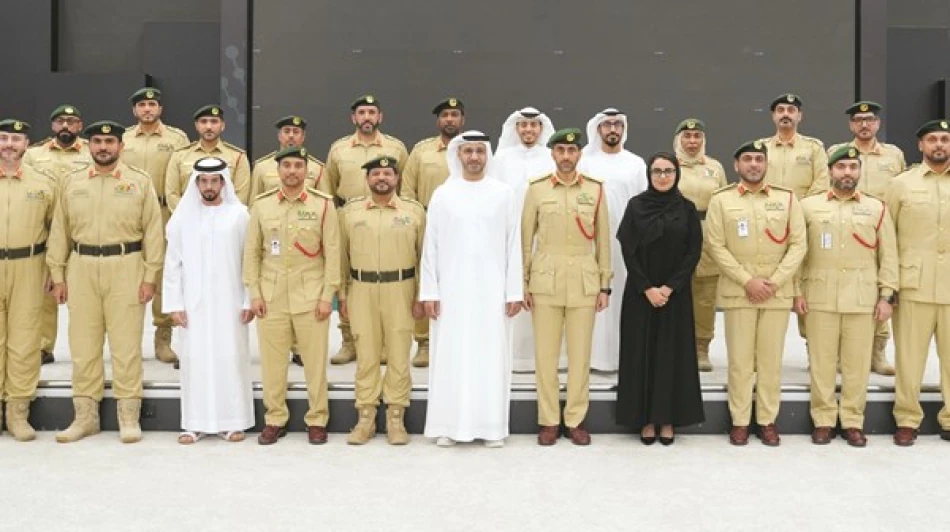
National Human Rights Commission Hosts Specialized Introductory Workshop
UAE Human Rights Authority Strengthens Police Partnership Through Strategic Training Initiative
The UAE National Human Rights Authority has launched a comprehensive training workshop for Dubai Police leadership, marking a significant step in institutionalizing human rights oversight within law enforcement operations. This collaboration signals the Emirates' commitment to embedding international human rights standards into its security apparatus amid growing global scrutiny of policing practices.
Strategic Partnership Framework
The workshop, conducted in partnership with the Ministry of Interior and Dubai Police's Human Rights Department, brought together key officials including Dr. Saeed Al Ghafli, Secretary-General of the Human Rights Authority, and Abdulaziz Al Awbathani, Head of Regional and International Organizations Section. The initiative represents a formalized approach to integrating human rights considerations into daily police operations.
This institutional cooperation extends beyond symbolic gestures, establishing concrete mechanisms for ongoing oversight and professional development within the UAE's law enforcement community.
Operational Implementation Strategy
Field Visit Methodology
The training focused heavily on preparing for systematic field visits to police facilities and operations. These inspections will follow international best practices for human rights monitoring, creating accountability mechanisms that align with the UAE's obligations under various international treaties and conventions.
The structured approach includes regular assessments of detention facilities, interrogation procedures, and treatment of suspects—areas that have historically drawn attention from international human rights organizations.
Building Institutional Capacity
The workshop emphasized integration rather than oversight, positioning human rights compliance as a core operational requirement rather than an external constraint. This approach mirrors successful reforms implemented in countries like Jordan and Morocco, where security forces have undergone similar modernization processes.
Regional Context and Implications
The UAE's proactive stance on police-human rights integration reflects broader regional trends toward institutional modernization. Unlike reactive reforms following international criticism, this initiative appears designed to preemptively address potential concerns while strengthening the country's international standing.
The timing coincides with increased global focus on policing standards, particularly following international movements for police reform. By establishing formal cooperation frameworks, the UAE positions itself ahead of potential international pressure while demonstrating commitment to evolving global standards.
Enforcement and Accountability Mechanisms
The partnership creates dual accountability structures: internal police oversight through the Dubai Police Human Rights Department and external monitoring through the National Human Rights Authority. This dual-track approach provides both preventive measures and corrective mechanisms, essential for maintaining public trust and international credibility.
The success of this initiative will likely influence similar programs across other Emirates, potentially establishing a national model for human rights integration within security services. The emphasis on "legally guaranteed rights" suggests alignment with both domestic legislation and international commitments, creating binding obligations rather than voluntary guidelines.
Most Viewed News

 Layla Al Mansoori
Layla Al Mansoori






